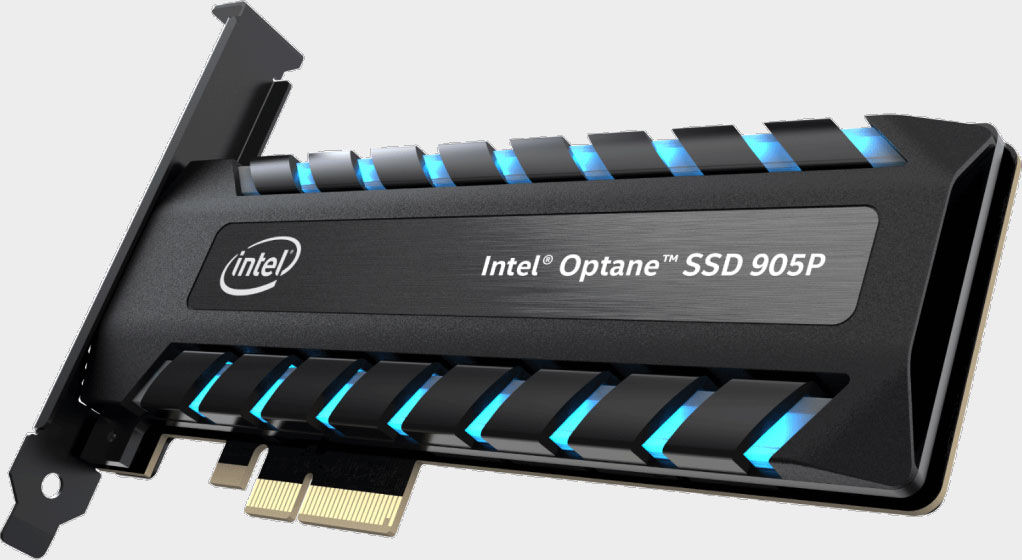Intel's extremely fast Optane SSDs now come in 1.5TB models
Still super fast, and now nearly double the max capacity.
In general, prices have come down quite a bit on SSDs, including NVMe models, if you're looking for something faster than SATA. Then there Intel's Optane SSD 905P family. These drives are extremely fast, expensive, and now more capacious.
Intel sent us a note to let us know it's rolling out its highest capacity Optane SSDs to date, topping out at 1.5TB for the Optane 905P add-in card (AIC). Previously, the AIC version's largest size was 960GB. That's a nice capacity bump, for those who need (and can afford) the added storage.
The U.2 model is also getting a getting a capacity increase, with new 960GB and 1.5TB options. These will sit alongside the existing 280GB and 480GB models.
Intel didn't mention pricing or availability, though don't expect these drives to be cheap by any stretch. The 960GB AIC debuted at $1,300 and now streets for $1,199 (on sale at Newegg), so you can imagine how much a 1.5TB variant might cost—in the neighborhood of $1,500 or more, if we had to guess.
Part of the premium is because these drives are based on 3D XPoint memory that should last a long, long time. Exactly how long? Intel rates these drives for 10 DWPD (drive writes per day), for five years. For the 960GB model, that's an endurance rating of 17,520TB written. And for 1.5TB, that works out to 27,375TB written.
That's a lot of data, much more than what the average user is likely to burn through in five years time. Still, it's nice to see Intel pushing higher capacities, at hopefully better price-to-gigabyte ratios.
Keep up to date with the most important stories and the best deals, as picked by the PC Gamer team.
Paul has been playing PC games and raking his knuckles on computer hardware since the Commodore 64. He does not have any tattoos, but thinks it would be cool to get one that reads LOAD"*",8,1. In his off time, he rides motorcycles and wrestles alligators (only one of those is true).



